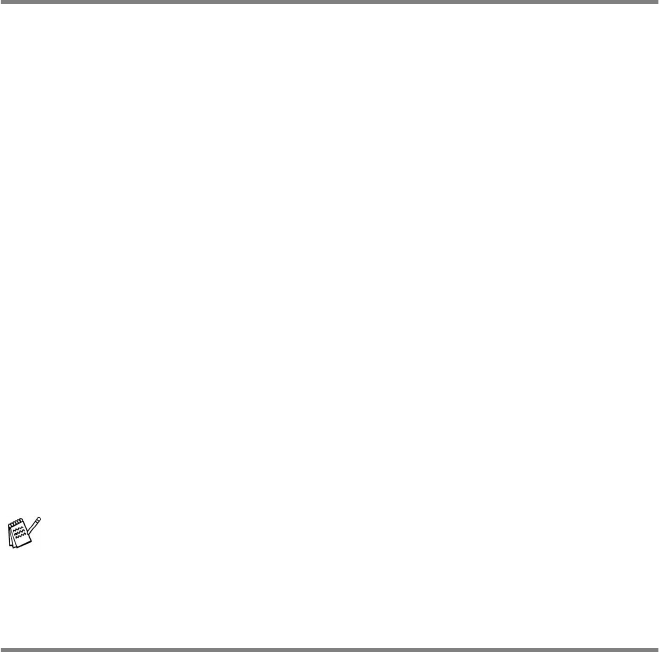
INTRODUCTION 1 - 7
Fax tones and handshake
When someone is sending a fax, the fax machine sends fax calling tones (CNG
tones). These are quiet, intermittent beeps every 4-seconds. You’ll hear them after
you dial and press
Fax Start
and they will continue for about 60 seconds after
dialing. During that time, the sending machine must begin the “handshake” with the
receiving machine.
Each time you use automatic procedures to send a fax, you are sending CNG tones
over the phone line. You’ll soon learn to listen for these quiet beeps each time you
answer a phone on your fax line, so you will know if you are receiving a fax message.
The receiving fax responds with fax receiving tones, which are loud, chirping
sounds. A receiving fax chirps for about 40 seconds over the phone line, and the
LCD shows
RECEIVE
.
If the fax machine is set to the
FAX ONLY
mode, it will answer every call
automatically with fax receiving tones. If the other person hangs up, the fax machine
will continue to send the “chirps” for about 40 seconds, and the LCD continues to
show
RECEIVE
. To cancel the receiving, press
Stop/Exit
.
The fax ‘handshake’ is the time in which the sending machine’s CNG tones and the
receiving machines “chirps” overlap. This must be for at least 2 to 4 seconds, so the
fax machines can understand how each is sending and receiving the fax. The
handshake cannot begin until the call is answered, and the CNG tones only last for
about 60 seconds after the number is dialed. So it is important for the receiving
machine to answer the call in as few rings as possible.
ECM (Error Correction Mode)
The Error Correction Mode (ECM) is a way for the fax machine to check a fax
transmission while it is in progress. ECM transmissions are only possible between
machines that both have this feature. If they do, you may send and receive fax
messages that are continuously being checked by the machine.
The fax machine must have enough memory for this feature to work.
When you have an external Telephone Answering Device (TAD) on your fax
line, your TAD will decide the number of rings before the call is answered.
Pay special attention to the directions for connecting a TAD in this chapter.
(See Connecting an external telephone answering device (TAD) on page 1-9.)


















